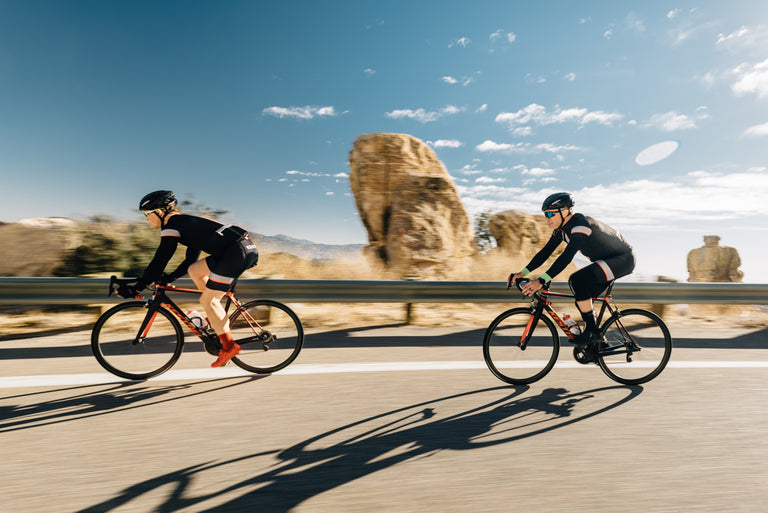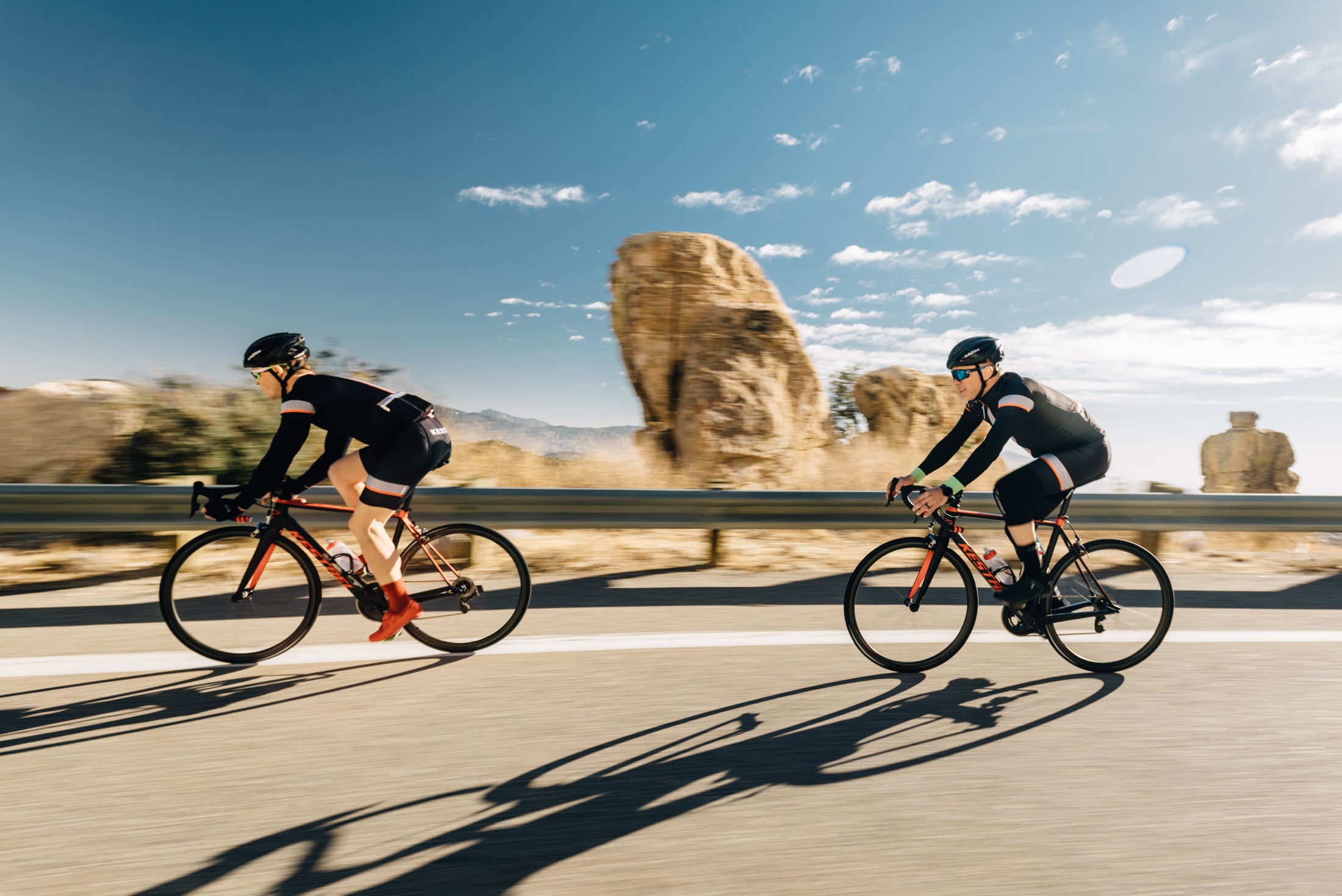Trying to go the distance this season? Got a performance goal in mind?
Having a solid nutritional foundation is a must! Whether you’re training for a race, or want to prevent bonking during longer exercise bouts, your daily diet is the key to supporting your goals. Consuming a diet with adequate calories and varied carbohydrates, protein, fats and colorful fruits and vegetables supplies the energy and micronutrients needed to push your limits.
But did you know that specific supplements might benefit your performance goals? As a busy athlete, you might find it difficult to consume enough nutrients. As such, supplements can help “fill the gaps” in your diet. In addition, ergogenic aids, or performance-enhancing supplements, may also support your goals.
General supplements to consider
Many athletes struggle to dedicate time to their nutrition. You may find it difficult to consume enough calories and add a variety of fruits and vegetables, but these are important strategies for increasing daily vitamin and mineral requirements. If lifestyle, work and your training schedule make this difficult, you might consider a multivitamin. Alternatively, a greens powder, such as Gnarly Performance Greens, can also act as a powdered-multivitamin.
Vitamin D plays an important role in maintaining cardiovascular function, bone health, immunity, mood, immunity and more. Because the prevalence of vitamin D deficiency is growing in both the general and athletic populations, supplementation may be of benefit. Vitamin D supplementation may also enhance cardiovascular training adaptations, thereby improving performance.1 Your primary care doctor can order a blood test to assess your levels and help you decide if a supplement is right for you.
Iron is a vital mineral that is needed for oxygen transport within the body. Low levels of iron can contribute to fatigue, shortness of breath and poor performance. Those most at risk of iron deficiency are athletes who consistently push their upper limit, vegans/vegetarians, people who menstruate, pregnant athletes or individuals with gut disorders. Cyclists should routinely consult their primary care doctors to monitor iron levels. If your iron levels are low, you might consider an iron supplement.
Protein supplementation, either from whey or vegan protein powders, can help busy athletes meet their daily protein requirements. If you are consistently training, your protein needs increase.2 Oftentimes, it may be difficult to consume enough via the diet alone.
If you routinely sweat during training and/or longer exercise bouts, you may benefit from replenishing the electrolytes lost in sweat. Electrolytes are critical for our nervous system, muscle function and maintaining hydration status. Gnarly Hydrate will help replenish those electrolytes lost during workouts. But if you’re looking for a performance edge, you may consider Gnarly Fuel2O, which contains electrolytes along with carbohydrates for added energy during workouts.
Collagen synthesis occurs naturally in the body, but production declines with age. It is possible to support collagen production via a supplement. In powdered form, collagen peptides can help cyclists prevent injuries or act as an adjunct tool for injury rehabilitation. It works by supporting connective tissue repair and speeding up recovery.3
Supplements for performance
Creatine is becoming increasingly popular for power and strength athletes. But it has also been shown to support high-intensity exercise bouts, and endurance.4 Supplementing with creatine may also enhance training adaptations.
Pre-workout that contains caffeine, beta-alanine and branched-chain amino acids (BCAAs) may provide support for long, intense cycling. Caffeine reduces perceived effort and increases focus, thereby enhancing performance.5 Beta-alanine acts as a pH buffer, which will support performance during intermittent sprints or increased power needs. It may also increase time to exhaustion in intense exercise bouts.6 BCAAs taken before exercise may prevent muscle soreness and enhance recovery.7
Should all cyclists take supplements?
All cyclists, both highly-trained and recreational, can benefit from taking supplements and ergogenic aids. However, it depends on your goals, current diet, medications, age, etc. Younger athletes should avoid caffeinated products due to the impact on growth and development.8 Older athletes may benefit most from dietary supplements, such as multivitamins, due to decreased absorption of micronutrients as we age.
And especially for cyclists on the pro and semi-pro level, making sure your supplements do not contain ingredients on the banned substances list is crucial to succeeding, even before you spin up to the start line. Luckily, Gnarly Nutrition products are NSF Certified.
As with any new supplement or dietary regimen, consult your doctor first. Some of your medications may be contraindicated with certain supplements. Your doctor can guide you in making the best decision for you.
Works cited
- Curtis, F., et al. 2017. A 15-week vitamin D supplementation and indoor cycling intervention reduces exercise heart rate, with no effect on glycaemic control in health adults: A pilot investigation. International Journal of Exercise Science, 10(2), 274-283. https://digitalcommons.wku.edu/cgi/viewcontent.cgi?article=1967&context=ijes
- Cintineo, HP, et al. 2018. Effects of protein supplementation on performance and recovery in resistance and endurance training. Front. Nutri. https://doi.org/10.3389/fnut.2018.00083
- Schunck, M, Oesser, S. (2013). Specific collagen peptides benefit the biosynthesis of matrix molecules of tendons and ligaments. J Int Soc Sports Nutr, 10, P23. https://jissn.biomedcentral.com/articles/10.1186/1550-2783-10-S1-P23
- Kreider, RB, et al. 2017. International Society of Sports Nutrition position stand: Safety and efficacy of creatine supplementation in exercise, sport, and medicine. Journal of the International Society of Sports Nutrition, 14(18). https://jissn.biomedcentral.com/articles/10.1186/s12970-017-0173-z
- Goldstein, ER, et al. 2010. International society of sports nutrition position stand: Caffeine and performance. Journal of the International Society of Sports Nutrition, 7(5). https://jissn.biomedcentral.com/articles/10.1186/1550-2783-7-5
- Bellinger, P.M. and C.L. Minahan. 2016. The effect of beta-alanine supplementation on cycling time trials of different length. Eur J Sport Sci., 16(7), 829-36. https://pubmed.ncbi.nlm.nih.gov/26652037/
- Rahimi, MH, et al. 2017. Branched-chain amino acid supplementation and exercise-induced muscle damage in exercise recovery: A meta-analysis of randomized clinical trials. Nutrition, 42, 30–36. https://pubmed.ncbi.nlm.nih.gov/28870476/
- Duchan, E, et al. 2010. Energy drinks: A review of use and safety for athletes. Phys Sportsmed., 38(2): 171-9. https://pubmed.ncbi.nlm.nih.gov/20631477/




